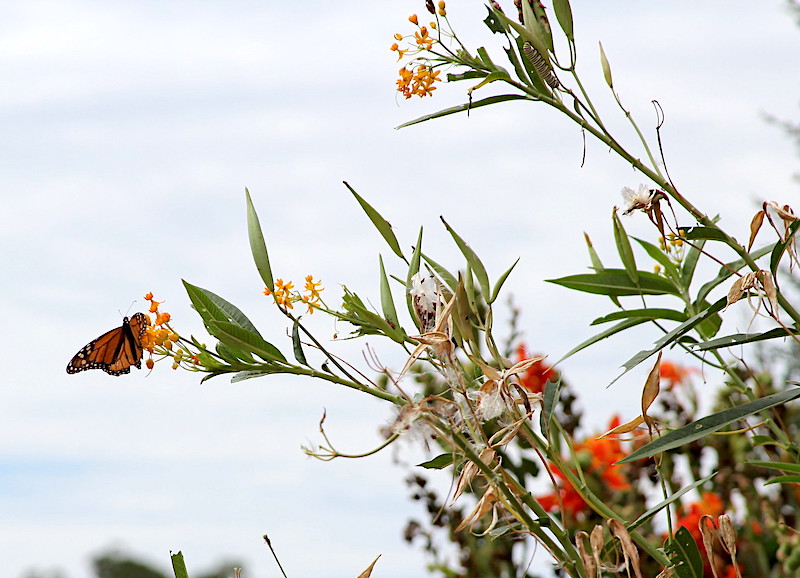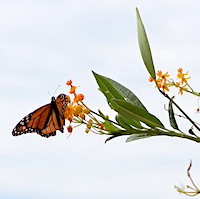The time of the year has come when Georgians look to the sky to watch for signs of Monarch butterfly migration.
These butterflies are on their way to the Sierra Madre of Mexico to overwinter on the oyamel (or sacred fir) trees of the area. The fir trees provide the perfect habitat, combined with the area’s optimal temperatures and humidity, to ensure that the butterflies survive the winter.
Reports around Georgia are that Monarch populations are high. A poll taken of insect enthusiasts showed that 83% have seen Monarchs heading south this year. Thirty percent of respondents indicated that they are seeing a higher number of Monarchs than last year.
This is terrific news, as Monarch population numbers have been inconsistent over the last several seasons.
To increase the chances of seeing this phenomenon and to assist the butterflies, plant a fall migration garden. Monarchs descend from their high migration path looking for food resources.
Research shows that migrating butterflies respond to tall flowers that are easily accessible. Joe Pye weed (Eutrochium purpureum), goldenrod (Solidago spp.) and Mexican sunflower (Tithonia rotundifolia) are all proven Monarch attractors.
Several fall-blooming native aster plants (Aster spp.) are perfect for these butterflies as well. The butterflies do not need milkweed (Ascelpias spp.), their larval host plant, at this time of the year, but be sure to include milkweed in your summer butterfly garden.
To follow the Monarch migration and to report your butterfly sightings, visit Journey North at journeynorth.org/monarchs. This organization has tabulated the reports of citizen-scientists for many years and is a great resource for school groups.
Monarch Watch, accessible at monarchwatch.org, provides online information about these insects and their habitat needs.
It is amazing to realize that this super generation of migrating butterflies endure the hazards of the trip to go to a place that they have never been before. If you miss the fall Monarch migration, spend time getting your garden ready for the Monarchs’ return in the spring. Contact your local University of Georgia Cooperative Extension office for more information about butterfly gardening and habitat building.








